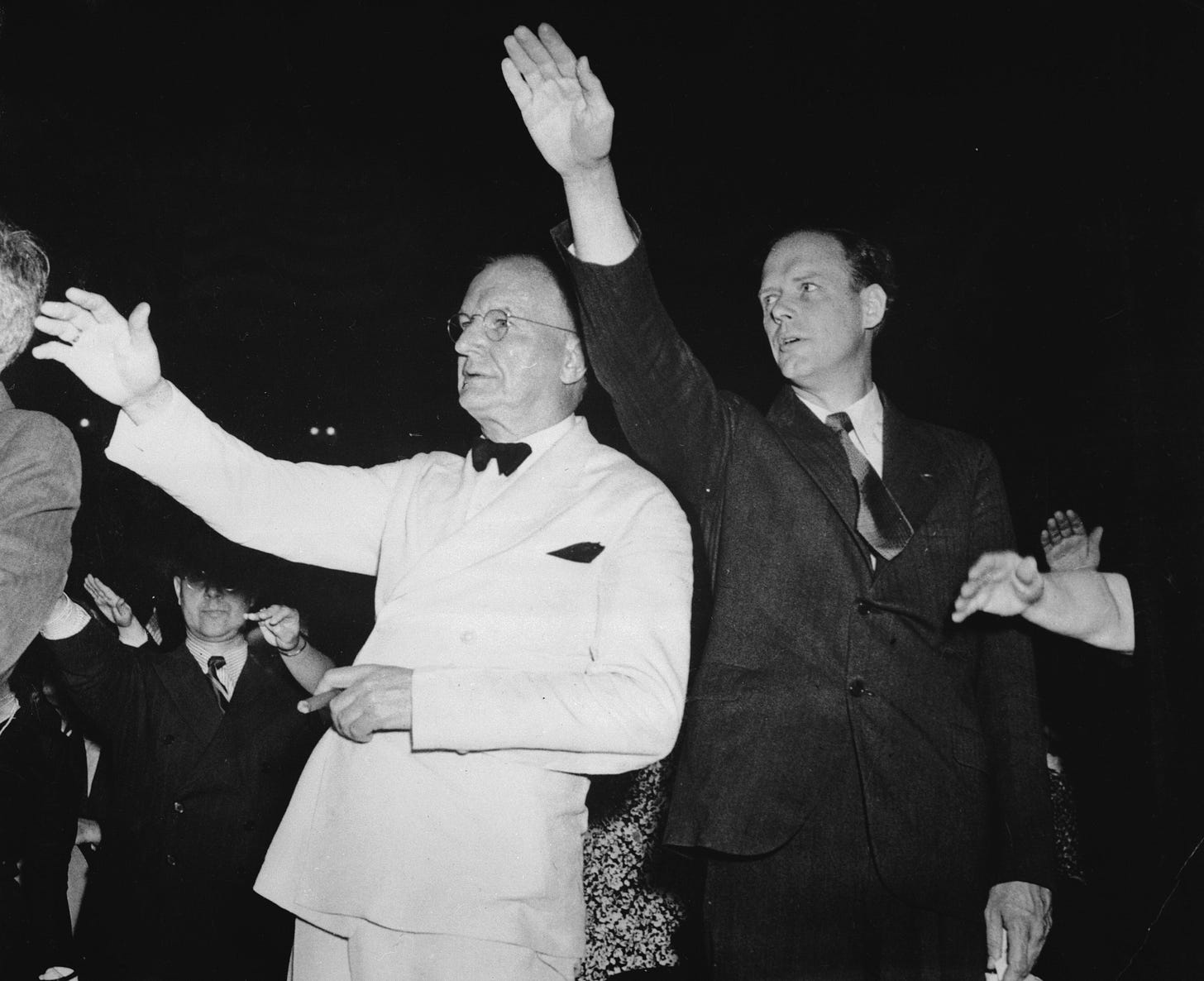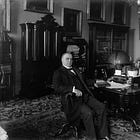The sordid origin of 'America First,' explained by a historian
"They were not keen on fighting Nazis."

🗣️ Public Notice is 100 percent reader funded. If you appreciate our fiercely independent coverage of American politics, please sign up and support us. 👇
“America First” was problematic long before Donald Trump was on the scene.
In the 1930s, as fascism was on the rise abroad, the slogan stood for anti-interventionism and deep skepticism about how committed America should be to opposing authoritarianism. And it was far from a fringe view.
“Mainstream opinion in the 1930s was not pro-Nazi, but it was not anti-Nazi in any meaningful way either,” historian Eric Rauchway told us. “A lot of people would say, ‘Germany for the Germans’ — what’s offensive about that?’ Nationalism has a certain accepted sensibility.”
Ultimately, FDR was elected four times, and America played an integral role in defeating Hitler. But what a difference a century makes.
To get some perspective on the origin of “America First” and what it teaches us during our moment of rising authoritarianism, we connected with Rauchway, a UC Davis distinguished history professor and expert on early 20th century America who we talked to earlier this year about tariffs.
“It really does matter who the president is and what his attitude is,” Rauchway said. “Historians don’t always like to acknowledge it, but sometimes the individual is just as important just as much as social movements and institutions. Franklin Roosevelt was anti-dictator from the beginning of the New Deal, and that shaped history.”
A full transcript of Rauchway’s conversation with Public Notice contributor Thor Benson, lightly edited for length and clarity, follows.
Thor Benson
Trump didn't invent “America First,” but I don't think a lot of people know the history. Could you tell us a little bit about where the term comes from?
Eric Rauchway




